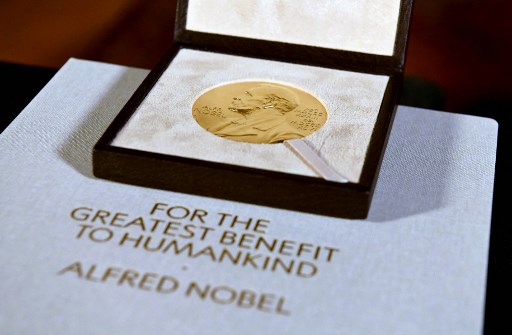
403
Sorry!!
Error! We're sorry, but the page you were
looking for doesn't exist.
Jimmy Carter seen as one who most effectively escaped global criticism about dubious nature of Nobel Peace Prize
(MENAFN) Among the four U.S. presidents awarded the Nobel Peace Prize—Teddy Roosevelt, Woodrow Wilson, Jimmy Carter, and Barack Obama—Jimmy Carter is often seen as the one who most effectively escaped global criticism about the dubious nature of the award. His decision to pardon anti-Vietnam War protesters and draft dodgers on the second day of his presidency in 1977 demonstrated his commitment to peace and reconciliation.
Woodrow Wilson, awarded the Nobel Peace Prize in 1919 for his efforts in establishing the League of Nations, is another controversial recipient. While the prize was meant to recognize his diplomatic efforts, Wilson's racist policies, including support for eugenics and restrictive immigration laws, tarnished his legacy. His role in exacerbating nationalism and his indifference toward the fate of marginalized groups during the early 20th century further complicates his accolade. Teddy Roosevelt, awarded the Peace Prize in 1906 for his role in mediating the Russo-Japanese War, also had a troubling legacy. His imperialist actions, such as his involvement in the Spanish-American War and the brutal suppression of Filipino insurgents, painted him as a promoter of violence and colonial expansion. Roosevelt's symbolic acts, such as the "Monkey Men" exhibit at the 1904 St. Louis World's Fair, further raised questions about his humanity and views on race.
As for Carter, his presidency was marked by optimism, especially in foreign policy. His campaign promises of reducing military spending and curbing Pentagon waste reflected a desire for change. However, the appointment of hawkish figures like Zbigniew Brzezinski raised doubts about his ability to live up to his promises. Despite these contradictions, Carter’s Nobel Prize in 2002 was a recognition of his contributions to peace, including his post-presidency work in humanitarian efforts. Ultimately, the legacies of these four presidents highlight the complex relationship between their actions and the Nobel Peace Prize. The prize, in many cases, appears to have been awarded more for political maneuvering than for genuine efforts toward lasting peace.
Woodrow Wilson, awarded the Nobel Peace Prize in 1919 for his efforts in establishing the League of Nations, is another controversial recipient. While the prize was meant to recognize his diplomatic efforts, Wilson's racist policies, including support for eugenics and restrictive immigration laws, tarnished his legacy. His role in exacerbating nationalism and his indifference toward the fate of marginalized groups during the early 20th century further complicates his accolade. Teddy Roosevelt, awarded the Peace Prize in 1906 for his role in mediating the Russo-Japanese War, also had a troubling legacy. His imperialist actions, such as his involvement in the Spanish-American War and the brutal suppression of Filipino insurgents, painted him as a promoter of violence and colonial expansion. Roosevelt's symbolic acts, such as the "Monkey Men" exhibit at the 1904 St. Louis World's Fair, further raised questions about his humanity and views on race.
As for Carter, his presidency was marked by optimism, especially in foreign policy. His campaign promises of reducing military spending and curbing Pentagon waste reflected a desire for change. However, the appointment of hawkish figures like Zbigniew Brzezinski raised doubts about his ability to live up to his promises. Despite these contradictions, Carter’s Nobel Prize in 2002 was a recognition of his contributions to peace, including his post-presidency work in humanitarian efforts. Ultimately, the legacies of these four presidents highlight the complex relationship between their actions and the Nobel Peace Prize. The prize, in many cases, appears to have been awarded more for political maneuvering than for genuine efforts toward lasting peace.

Legal Disclaimer:
MENAFN provides the information “as is” without warranty of any kind. We do not accept any responsibility or liability for the accuracy, content, images, videos, licenses, completeness, legality, or reliability of the information contained in this article. If you have any complaints or copyright issues related to this article, kindly contact the provider above.






















Comments
No comment